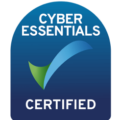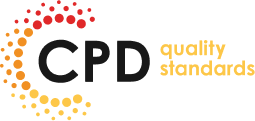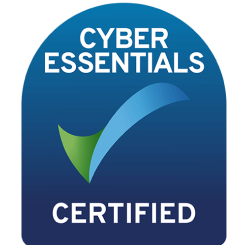Admission Requirements
Before you can begin an online MBA programme, you’ll need to meet certain admission requirements. Here are some of the most important ones:
Educational Background and Work Experience
Most MBA programmes require applicants to have a bachelor’s degree from an accredited institution. Some programmes may also require a minimum GPA, typically around 3.0 on a 4.0 scale.
In addition to educational background, work experience is also an important factor for MBA programmes. Many require applicants to have several years of work experience, typically in a managerial or leadership role. This is because an MBA curriculum is designed to build upon real-world experience and provide advanced knowledge and skills for business professionals.
Entrance Exams
Many MBA programmes also require applicants to take an entrance exam, such as the Graduate Management Admission Test (GMAT) or the Graduate Record Examination (GRE). These exams assess your critical thinking, analytical, and quantitative skills, and are used by admissions committees to evaluate your potential for success in the programme.
When preparing for entrance exams, it’s important to set aside enough time for studying and practice exams. Consider enrolling in a prep course or using study materials provided by the exam creators. Be sure to check the requirements of the programmes you’re interested in to see if they accept scores from other exams, such as the Executive Assessment or the GMAT Online exam.
Application Process and Deadlines
The application process for MBA programmes typically involves submitting an application, transcripts, test scores, a personal statement, and letters of recommendation. Some programmes may also require an interview or a resume.
Be sure to research the application requirements and deadlines for each programme you’re interested in, as they can vary widely. Generally, it’s recommended to apply as early as possible to increase your chances of admission and to allow enough time for the application process.
To submit a competitive application, focus on highlighting your academic achievements, work experience, leadership skills, and personal qualities that make you a good fit for the programme. In your application, make sure to edit and proofread your writing. That way, you can convey the message you want to without looking unprofessional or careless.
Online Learning Experience
One of the key advantages of pursuing an online MBA programme is the flexibility it provides. Since online learning can be accessed remotely, more students can access it and reap the benefits of higher education. However, online learning also requires different skills and tools than traditional in-person learning. Here are some of the most important things to consider when it comes to the online learning experience:
Technology Requirements
To participate in an online MBA programme, you’ll need access to a computer or mobile device with a stable internet connection. In addition, you’ll need to have certain software and platforms installed, such as a web browser, a word processor, and a learning management system (LMS). Some of the most common software and platforms used in online MBA programmes include:
- Zoom or Skype for virtual meetings and video conferences
- Canvas or Blackboard for course materials and assignments
- Dropbox or Google Drive for file sharing and collaboration
Users will also need access to a stable internet connection to access course materials and participate in online lectures, discussions, and activities.
Course Delivery
Online MBA programmes typically use a combination of synchronous and asynchronous course delivery. Synchronous classes are held in real-time, usually through video conferencing software, while asynchronous classes allow you to complete coursework on your own schedule.
To stay engaged and participate in a virtual classroom, it’s important to be an active learner. This means taking notes, participating in discussions, and asking questions when you don’t understand something. It’s also important to manage your time effectively and avoid procrastination.
Support Services
Online MBA programmes typically offer a range of support services to help you succeed, including academic advising, tutoring, and technical support. Some common support services for online MBA students include:
- Access to a dedicated academic advisor
- Online tutoring services for specific subjects
- Technical support for software and hardware issues
- Career services for job search assistance and resume reviews
These support services are similar to those offered at traditional schools, but students will have to learn how to navigate the university’s website to find them.
Career Outcomes
Earning an MBA degree can significantly benefit your career advancement and earning potential. Here are some of the most important career outcomes to consider when pursuing an online MBA programme:
Career Advancement
One of the main reasons professionals pursue an MBA is to advance their careers. An MBA degree can provide you with advanced knowledge and skills in areas such as leadership, strategy, and finance, which employers highly value. After completing an MBA programme, you may have access to a wide range of job opportunities, including:
- Senior management positions
- Consulting roles, either at consulting firms or within an organisation
- Entrepreneurial ventures, either starting your own business or joining a startup
- Specialised roles, such as in finance, marketing, or human resources
Return on Investment
An MBA programme is a significant investment in both time and money. However, the return on investment (ROI) can be substantial. When calculating the ROI of an MBA programme, consider factors such as:
- The cost of the programme, including tuition and fees
- The potential increase in salary and earning potential
- The value of the skills and knowledge gained in the programme
In the UK, MBA graduates typically earn higher salaries than those without an MBA degree. And compared to in-person curriculum, online MBAs are typically less expensive to obtain.
Endnote
By considering the potential career outcomes and ROI of an MBA programme, you can make an informed decision about whether pursuing one is the right choice for you. An online MBA programme can provide you with the knowledge, skills, and network you need to succeed in your career. By considering the career outcomes and ROI of the programme, you can make an informed decision about whether it’s the right choice for you.


![]() 11 minutes
11 minutes
































